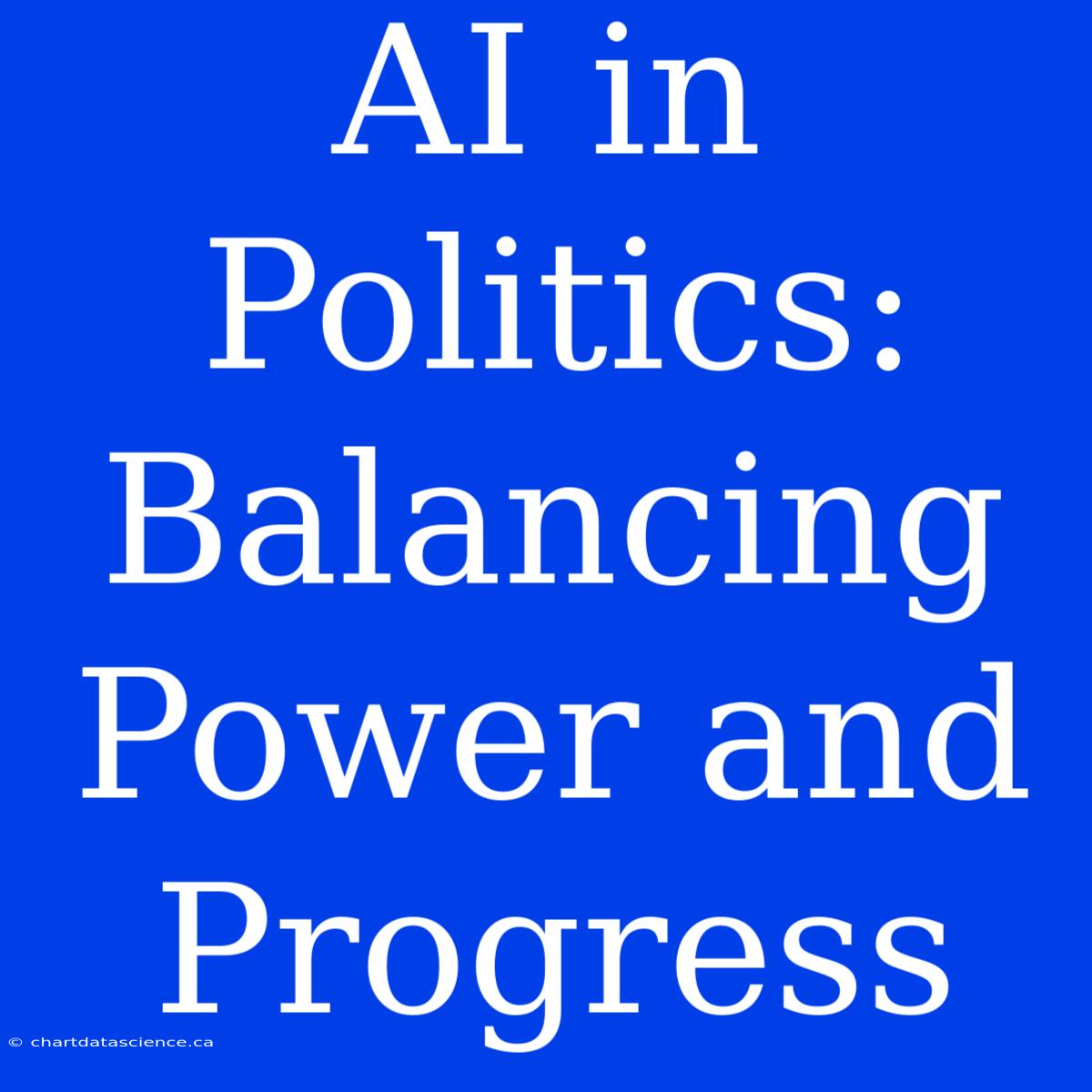AI in Politics: Balancing Power and Progress
Artificial intelligence (AI) is rapidly changing the world, and politics is no exception. From campaign analysis to policy development, AI is being used in innovative ways to enhance efficiency and effectiveness. However, this exciting new frontier raises significant concerns about potential misuse, power imbalances, and the erosion of democratic values.
The Potential of AI in Politics
AI offers exciting possibilities for transforming political processes.
-
Campaigning: AI tools can analyze voter data, target specific demographics, and optimize campaign messaging for maximum impact. This allows for more personalized and effective campaigning, reaching the right people with the right message at the right time.
-
Policy Development: AI algorithms can analyze vast amounts of data to identify trends, predict outcomes, and generate insights for policy decisions. This data-driven approach can help create more informed and effective policies that address complex societal challenges.
-
Transparency and Accountability: AI can enhance government transparency by automating data collection and analysis, making it easier to track public spending, identify corruption, and improve public service delivery.
Concerns and Challenges
While the potential of AI in politics is exciting, it's crucial to acknowledge the risks and challenges associated with its adoption.
-
Bias and Discrimination: AI algorithms can perpetuate existing biases in data, leading to unfair or discriminatory outcomes. This can have serious implications for political representation, access to resources, and even electoral integrity.
-
Power Imbalance: The development and control of AI technology are often concentrated in the hands of a few powerful entities. This can create a situation where a select few hold disproportionate influence over political processes, undermining democratic values and principles.
-
Erosion of Privacy: AI-powered surveillance and data collection technologies pose a significant threat to individual privacy. This can have chilling effects on freedom of expression and political dissent.
Balancing Power and Progress
Navigating the ethical and practical challenges of AI in politics requires a nuanced approach that prioritizes both progress and responsible implementation.
-
Transparency and Accountability: Develop clear regulations and guidelines for AI use in politics, ensuring transparency in data collection and algorithm development.
-
Diversity and Inclusion: Promote diversity in the AI development and implementation process to mitigate bias and ensure representation of diverse perspectives.
-
Human Oversight and Control: Ensure that AI tools are used as a supplement to human judgment and decision-making, rather than replacing it entirely.
-
Public Education and Engagement: Foster public understanding of AI and its potential impact on politics, empowering citizens to participate in the debate and hold policymakers accountable.
AI presents a complex and evolving landscape in politics. By carefully considering the risks and opportunities, we can harness its power to advance democratic values and ensure a future where AI serves as a force for progress, not a tool for control.

